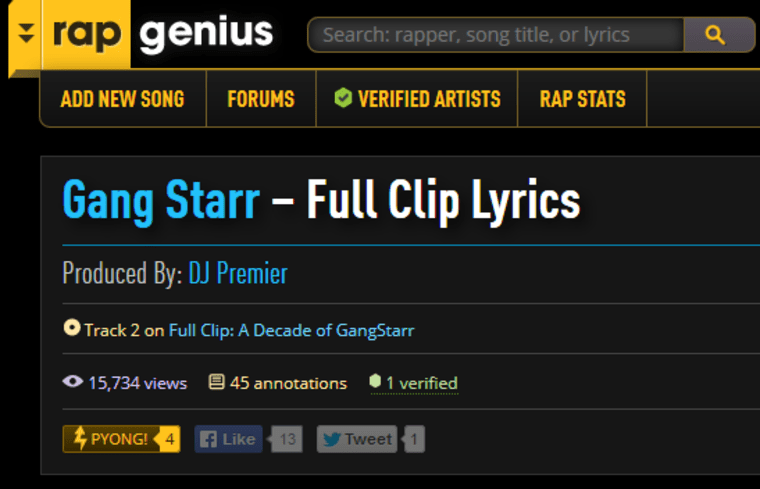Popular lyrics site Rap Genius has disappeared from Google after the search giant caught it in a bit of suspicious SEO ("search engine optimization") activity. The founders insist they didn't mean to break any rules, but it's a sobering reminder to them and others just how important Google is for Internet businesses.
The story started when Rap Genius posted on its Facebook page that fans and followers could become "blog affiliates." Blogger John Marbach decided to check it out, and found that the offer was less for collaboration and more an attempt to game Google's sophisticated site-ranking algorithm.
Rap Genius would tweet out a link to their new "affiliate," sending traffic their way. All the "affiliate" had to do was add a series of links to Rap Genius' Justin Bieber lyric pages on their site.
The idea was that Google would see these links to Rap Genius and rank the site higher in searches for "Justin Bieber" and the like. Marbach exposed the link-trading effort in a blog post, and before long Google had caught on — and totally removed Rap Genius results from searches. Naturally, traffic dropped through the floor.
The site wasn't off the Internet altogether, of course; going straight to rapgenius.com takes you there as usual, and its lyrics still show up on Bing, Yahoo, DuckDuckGo, and other search engines. But it wouldn't be the only site that relies on Google searches for a majority of its traffic.
The founders quickly wrote a response, explaining that they hadn't meant the program to fall under disapproved methods, and that their competitors in the lyrics website world were all using far worse tactics. They also issued a statement to TechCrunch saying "we are working with Google right now to resolve this."
There are many methods to raise one's rank on Google, but some are shadier than others, and the consequences of getting caught can be serious. J.C. Penney, for instance, found itself banished from the front page of search results back in 2011, when Google discovered thousands of links to their site inserted into random websites all over the web.
Even tolerated methods of boosting your site may one day prove to do the opposite: Google's "Penguin 2.0" update to search made some formerly helpful methods, like those thousands of unrelated links to J.C. Penney, do the opposite of what was intended. Websites that had relied on peppering the web with spam comments or packing their posts with links to themselves were soon scrambling to get back in Google's good graces.
It's not the end of the line: by repairing the relationship with Google and putting things in order, a site that has been blacklisted by Google can still claw its way back to the top.
Devin Coldewey is a contributing writer for NBC News Digital. His personal website is coldewey.cc.
